Your motorcycle carburetor needs cleaning if the engine starts with difficulty or runs irregularly. Noticeable signs include increased fuel consumption and decreased performance.
Ensuring your motorcycle runs smoothly involves regular maintenance, and a critical component requiring attention is the carburetor. It’s the heart of your bike’s engine, controlling the mixture of air and fuel, which powers your ride.
Over time, carburetors can accumulate deposits from fuel residues and dirt, leading to various symptoms that signal it’s time for a cleaning. So, motorcyclists should know if a motorcycle carburetor needs cleaning.
Riders will often experience a rough idle, hesitation, or stalling during acceleration, and potential engine backfires. These issues not only affect your motorcycle’s efficiency but can also lead to long-term damage if left unchecked.
Keeping an eye on these warning signs and maintaining a clean carburetor can save you from more costly repairs down the line and ensure a reliable performance from your motorcycle.
Table of Contents
Signs Of A Dirty Carburetor
Think of your motorcycle’s carburetor like its heart, pumping the lifeblood (fuel) to its essential parts (the engine). A dirty carburetor can cause a slew of issues, much like clogged arteries in a heart. It’s crucial to understand the signs of a dirty carburetor so you can keep your ride smooth and your engine healthy.
Engine Starts But Then Dies
Your bike’s engine kicking to life only to sputter out suggests grime buildup. The engine requires a steady flow of fuel and air. A dirty carburetor disrupts this. It struggles to maintain the engine’s idle, causing it to shut off.
Inconsistent Throttle Response
Riding should feel smooth. Noticing jolts when you twist the throttle? It’s a red flag. This irregularity often stems from dirt affecting fuel and air mixture. Clean carbs ensure consistent power delivery.
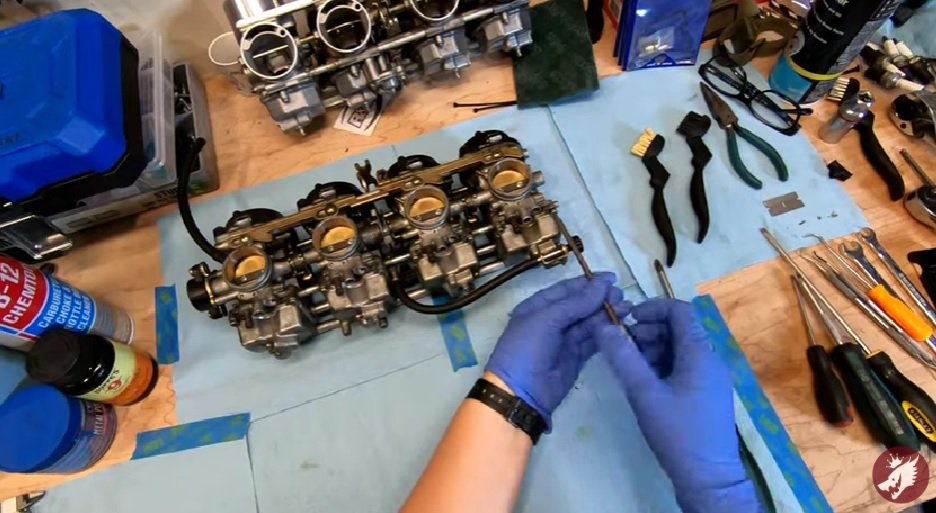
Exhaust Smoke And Bad Odor
Unusual exhaust smoke or foul-smelling fumes are warning signs. They can signify incomplete combustion. A clean carburetor is crucial for the right mix of air and fuel. If not, your exhaust tells the tale.
Addressing these issues promptly can save you time and money. Regular maintenance is key. Spot these signs? Consider carburetor cleaning to restore your motorcycle’s performance.
The Impact Of A Fouled Carburetor
When a motorcycle carburetor gets dirty, it affects your ride. The carburetor blends air and fuel. When it’s dirty, this mix is off. Your bike won’t feel right. Let’s dive into what happens when the carburetor isn’t clean.
Reduced Engine Performance
You’ll know something is up when your bike hesitates. It might start rough or idle poorly. Acceleration feels sluggish. This is often a carburetor issue.
- Engine stalls: A sign it’s dirty.
- Irregular idling: The engine runs unevenly.
- Hesitation: The bike feels slow when you speed up.
Poor Fuel Economy
Is your motorcycle thirsty? More gas with less distance means you might have a dirty carburetor. The wrong mix can waste fuel.
| Normal Mileage | With Fouled Carburetor |
|---|---|
| Good fuel economy | Increased fuel use |
| Longer rides | More fill-ups |
Potential Engine Damage
A dirty carburetor can harm your engine over time. The wrong air-fuel mix can cause damage. Cleaning is not just for performance, it’s to keep your bike healthy.
- Rough sounds: Metal parts could suffer.
- Excessive smoke: Signals incomplete combustion.
- Wear and tear: Damages harder to fix parts.
Common Causes Of Carburetor Contamination
A clean carburetor is key for a smooth-running motorcycle. But sometimes, it gets dirty and needs a clean-up. To keep your ride optimal, learn what makes a carburetor dirty.
Old Or Bad Fuel
Like food, fuel doesn’t stay good forever. Old fuel can cause problems for your bike’s carburetor. It turns into a sticky residue that can clog the carb. If your motorcycle sits for a long time, bad fuel could be your issue.
Debris And Residue Buildup
Riding in dirty conditions allows gunk to get into your carburetor. Dirt, dust, and grime sneak in and stick to the components. This buildup can block the flow of fuel and air. A good cleaning will wipe this problem away.
Infrequent Maintenance
Regular checks keep your motorcycle happy. Infrequent maintenance means dirt has time to build up. The longer it’s left, the worse it gets. Sticking to a cleaning schedule stops major jam-ups before they start.
Cleaning Your Motorcycle Carburetor
A humming engine and smooth rides start with a clean carburetor. Dust, debris, and the residue from old fuel can clog your motorcycle’s carburetor. This can cause a slew of performance issues. A well-maintained carburetor is essential for the optimal performance of your motorcycle.
When To Clean Vs. When To Replace Carburetor In A Motorcycle
It is necessary to know when to clean and when to replace a carburetor for motorbike maintenance. Signs your carburetor needs cleaning include challenging starts, poor idling, and irregular acceleration. On the other hand, if you’re facing persistent problems even after cleaning, or if the carburetor has visible damage, it might be time for a replacement.
Tools And Materials Needed
Preparing the right tools and materials is the first step in cleaning your carburetor. You will need:
- A carburetor cleaner spray
- A set of screwdrivers
- Compressed air
- Wrench set
- Pliers
- A clean cloth
- New gaskets (if necessary)
The Cleaning Process
The carburetor cleaning process follows a meticulous pattern. Here are the steps you should take:
- Disassemble the carburetor: Carefully remove it from your motorcycle, taking note of where each component fits.
- Inspect the parts: Look for any signs of wear or damage.
- Clean each part thoroughly: Use carburetor cleaner spray and a cloth to clean each piece.
- Blow out passageways with compressed air: Ensure all the small jets and passages are clear.
- Reassemble the carburetor: Replace worn or damaged gaskets as needed.
- Reinstall the carburetor: Make sure to reconnect all linkages and hoses.
A clean carburetor ensures a smoother ride, better fuel efficiency, and an overall healthier engine for your motorcycle.
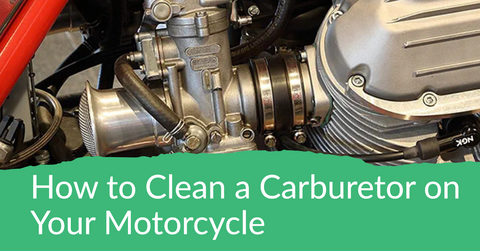
Credit: riiroo.com
Preventive Measures To Keep Your Carburetor Clean
Taking proper steps to maintain your motorcycle’s carburetor can save time, money, and avoid performance issues. Let’s explore how to keep your carburetor in top shape.
Regular Inspection And Maintenance
Keeping an eye on the carburetor is key to preventive maintenance. Schedule regular check-ups. Look for signs of dirt or grime buildup. Clean and adjust the carburetor as recommended by your motorcycle’s manual. This might include:
- Checking the throttle operation
- Adjusting the idle speed
- Inspecting for leaks or damage
Using Quality Fuel
The type of fuel you use can impact carburetor performance. Opt for high-quality fuel. Avoid gasoline with high ethanol content as it may cause build-up and corrosion over time. Consider adding a fuel additive designed to keep the fuel system clean, especially if the motorcycle is not used regularly.
Proper Motorcycle Storage
Long-term storage requires careful preparation to prevent carburetor issues. Drain the carburetor if your motorcycle will be unused for extended periods. Use a fuel stabilizer to keep the remaining fuel fresh and prevent varnish from forming. Store the motorcycle in a cool, dry space. Cover the motorcycle to protect it from dust.
FAQ
What Are Signs Of A Dirty Motorcycle Carburetor?
A dirty motorcycle carburetor often presents with rough idling, starting issues, and irregular acceleration. Black exhaust smoke and a decrease in fuel efficiency can also indicate it’s time for a cleaning.
How Do I Know If My Motorcycle Carburetor Is Bad?
If your motorcycle is experiencing issues like rough idling, hard starting, poor acceleration, or black smoke coming from the exhaust, these could be signs that your carburetor is bad. Additionally, you may notice a decrease in fuel efficiency or engine performance.
What Does A Dirty Carburetor Sound Like?
A dirty carburetor can produce various sounds, such as rough idling, engine misfires, popping noises from the exhaust, or sputtering sounds when accelerating. Additionally, you may hear a whistling sound indicating a vacuum leak caused by a dirty carburetor.
What Happens If Carburetor Is Not Cleaned?
If a carburetor is not cleaned regularly, it can lead to a range of issues such as poor engine performance, reduced fuel efficiency, hard starting, rough idling, engine stalling, and black smoke emission. Over time, the accumulation of dirt and debris can severely affect the overall functioning of the carburetor.
Can A Carburetor Affect Motorcycle Performance?
Yes, a carburetor directly affects motorcycle performance. Poor response, stalling, and a drop in power output are common symptoms of carburetor problems. Maintaining a clean carburetor helps ensure optimal engine performance.
How Often Should You Clean Your Motorcycle Carburetor?
Most manufacturers suggest cleaning your motorcycle carburetor every 1 to 2 years. However, if you ride frequently or in dusty conditions, you may need to clean it more regularly for optimal performance.
Will A Motorcycle Run With A Clogged Carburetor?
A motorcycle with a clogged carburetor may start and run, but it will likely exhibit poor performance. It might stall, hesitate upon acceleration, or demonstrate uneven throttle response due to restricted fuel and airflow.
Bottom Line
Maintaining a pristine carburetor is key to your motorcycle’s performance. So, you must know how to know If your motorcycle carburetor needs cleaning. Spot the signs early – from rough idling to poor acceleration.
Regular cleaning not only boosts efficiency but also prolongs your ride’s health. Don’t wait for symptoms to worsen. Prioritize your carburetor’s upkeep for a smoother, more powerful journey.
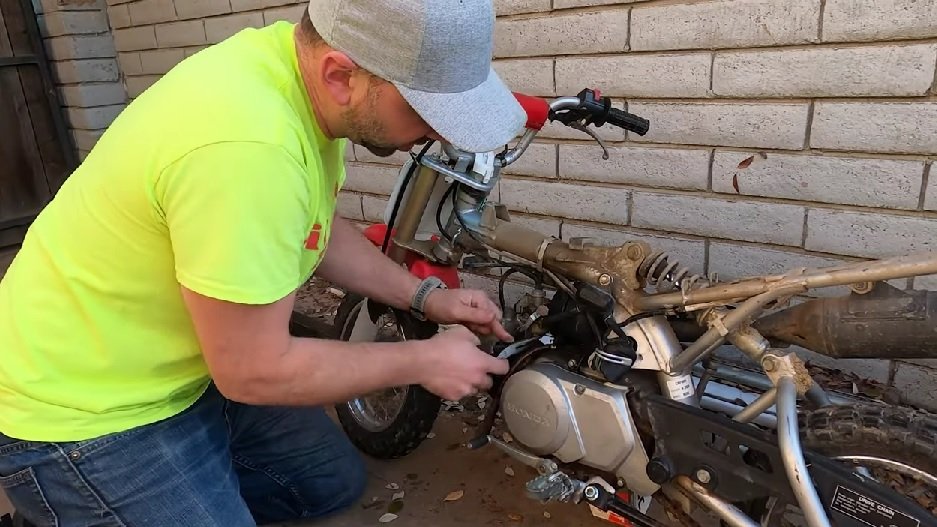

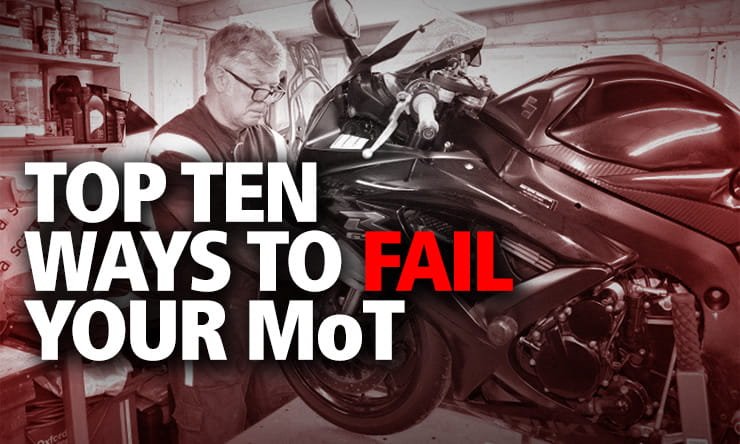
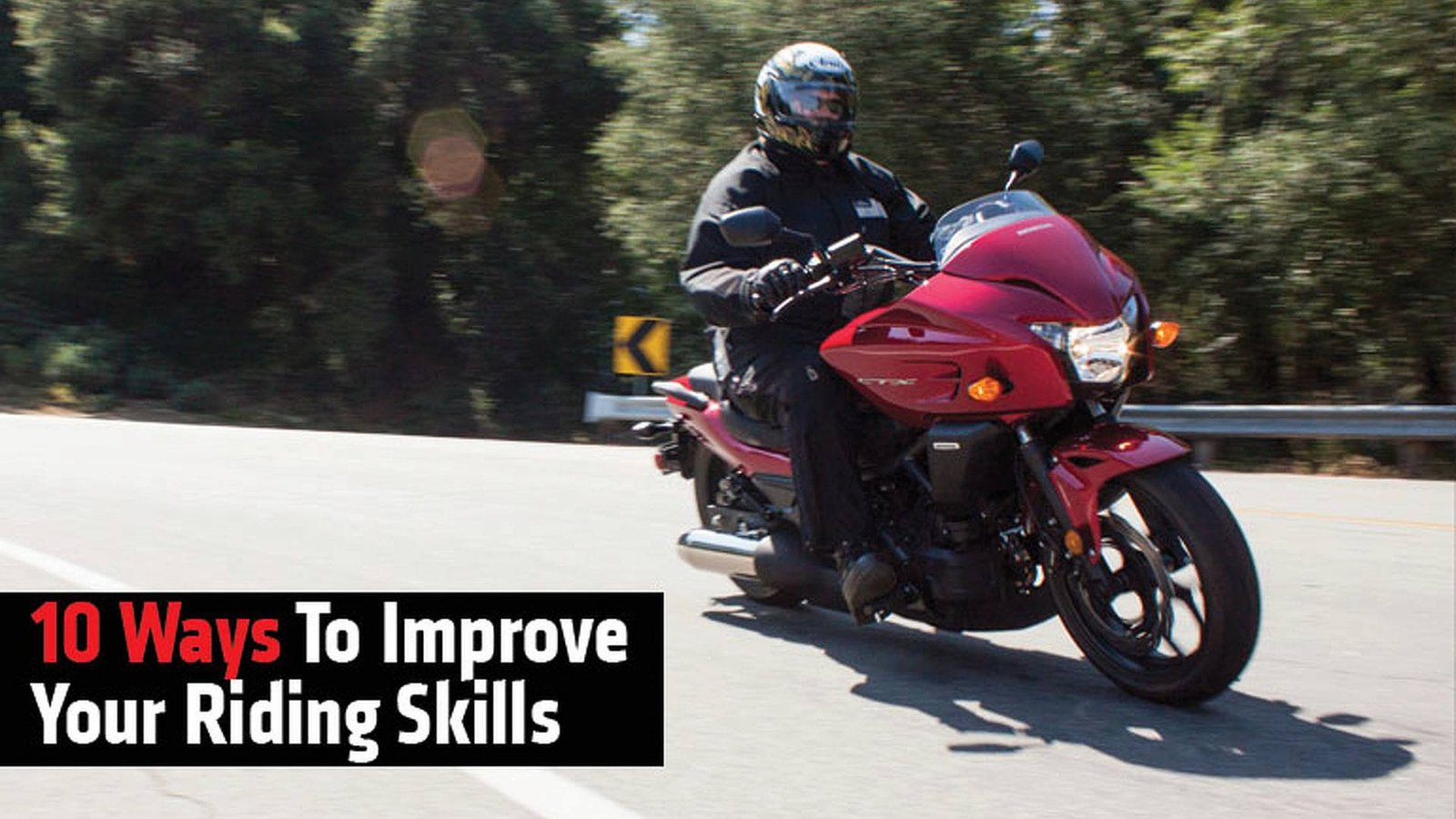
Leave a Reply